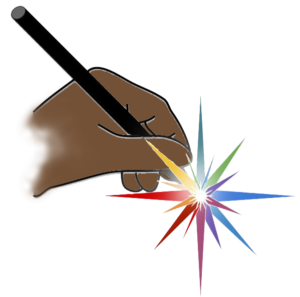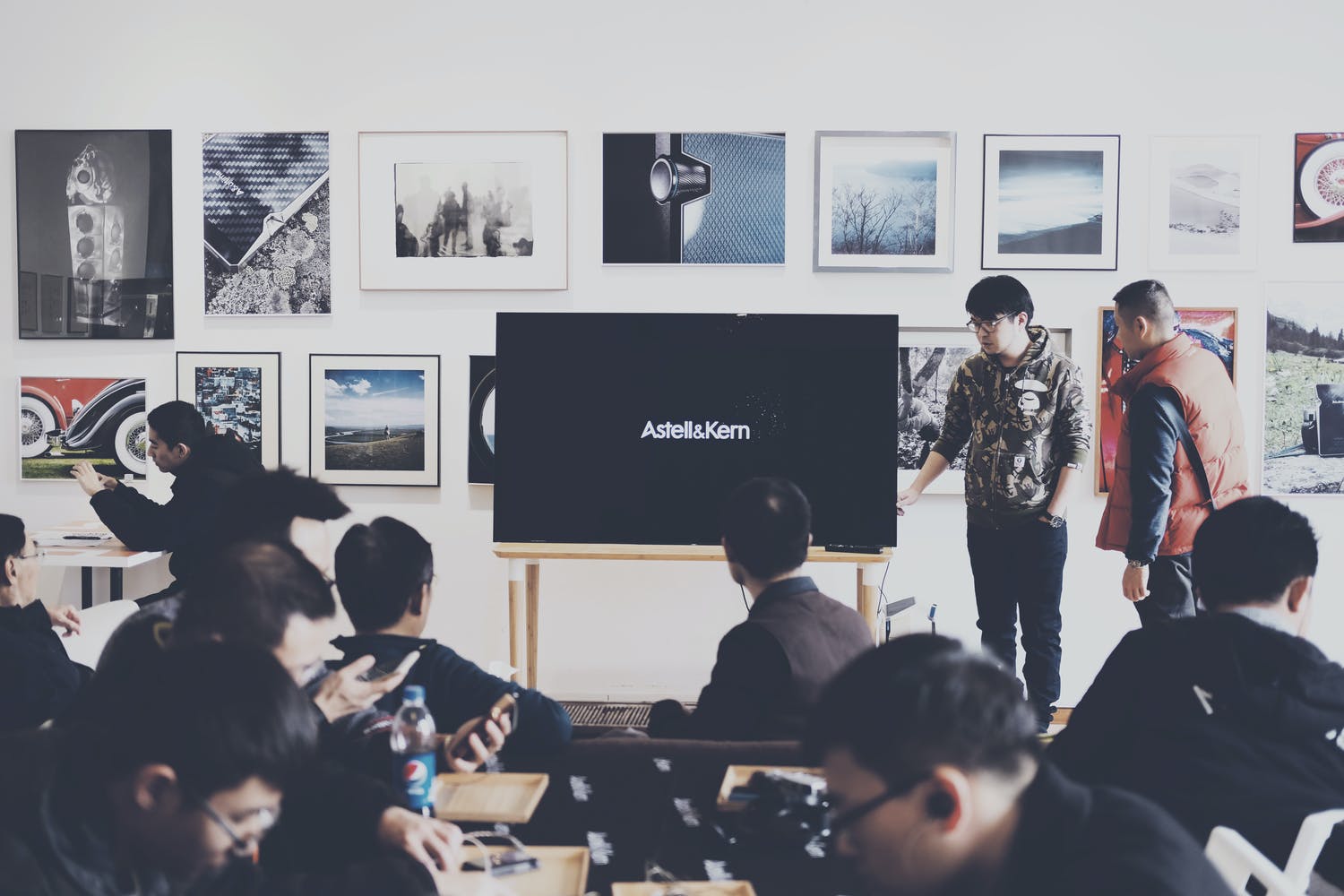Catalyst Pre-Professional Program
(C3P)
“An investment in knowledge pays the best interest.” Benjamin Franklin

Our Mission
Emboldening independent thinkers to feel financially and academically secure in their future
Catalyst Pre-Professional Program strives to provide rigorous, focused instruction and apprenticeships for learners in grades 9-12, through which graduates will have the study skills and commercially applicable competencies to financially and academically support themselves in college, career, or both. Students use their professional goals as a lens for their learning in all subjects allowing them to learn through their interests for better retention and applicability. We offer students training in critical thinking, independent work skills, and reflective analysis to embolden creative productive thinkers to become catalysts for their independent goals secure in their financial viability.
General Program Information
Individualized learning for productive, creative, analytical doers
Catalyst Pre-Professional Program is a small-group learning program serving in-person students in the North Metro Atlanta area and online students from around the world.
We offer conceptual, inquiry driven classes that use professional real-world scenarios in all academic areas for grades nine through twelve.
We also offer pre-professional elective classes and internships as well as life skills classes.
Classes meet in-person and via Google Meet simultaneously at a consistent time two or three times a week chosen by class members. Students are expected to be prepared for class meetings by completing independent assignments prior to class meetings.
Student-driven learning paths for holistically prepared students

Rigorous learning and Pre-Professional training
-
-All diploma-seeking C3P students chose a professional path by the beginning of their 11th grade year.
-
-
-Freshman and sophomore core classes teach through professional scenarios related to many careers while junior and senior students relate their work consistently to their one professional area focus culminating in a professional learning portfolio project and resume.
-
-
-Juniors and Seniors can add electives from other professional areas as electives if there is room in their schedule.
-
-End-of-Semester projects and presentations demonstrate learners’ growth through practical application of their subject areas and professional training.
-
-All c3P learners complete at least one field service learning day related to their professional area per semester taking on extended internships and training classes as applicable.
Teaching Model
-Lessons use real world scenarios, collaborative problem solving, and practical learning opportunities to offer students a chance to practice the skills they will need in their future endeavors.
-Students use critique and feedback from professional stakeholders and teachers to improve their professional skills while gaining perspective on how to apply their liberal arts and sciences skills in their independent life.
-Catalyst Pre-Professional Program utilizes active, purposeful learning environments; ideal for creative students ready to become masters of their craft and their futures.

Field Service Days
Catalyst Pre-professional Program believes in being a part of the greater community. All Catalyst Learners regardless of age participate in planning a monthly Field Service Day to deepen our learning through observation and experience while giving back to our community. These are more than just field trips. They are inquiry-based field studies related to current material. Student field observations and reflections become part of classroom discourse.
Subject Focuses
Students gain skills and perspective through interdisciplinary learning
Social Studies
Social studies is the backbone of our curriculum focusing on learning history and social studies as living components of our contemporary lives. We focus on learning to analyze social sources, find evidence for connections across sources, and especially finding commonalities across time and place to help us to learn more about our shared experience and how our diligent work can help to improve our world.
Diploma seeking students take:
A look at our American government through current events and principles of economics through the lens of a entrepreneur as students create their own businesses.
A study of 10 of the most pivotal events in global human history and their causes and effects.
Students research American history through the evolution and progression of their chosen profession focusing on primary sources and varying perspectives.
A look at the social and physical forces that impact cultures across the world and how globalization is affecting culture today.
Students choose one from these three classes focusing on how humans act and organize themselves to help their understanding of customers and their fellow humans.
Reading and Writing
Catalyst Pre-Professional Program unique approach to reading and writing helps students become expressive and effective communicators in many twenty-first century mediums while relying on integration of sources and supportive research as well as explicit analysis of differing grammatical structures.
Reading and writing classes at C3P are a student-driven collaboration with each student choosing their own texts to meet expectations with input and assistance from their teacher.
Learners work collaboratively and independently on texts related to their other classes meeting independently with teachers to critique and improve their work.
All students read texts from American and global authors; classic and modern texts; informational texts from varying perspectives and narrative texts; poetry, dramas, and prose to practice utilizing their analytical reading skills and persuasive skills through organization of evidence culminating in projects that provide students an opportunity to utilize their new learning to effectively communicate entertaining and creative informative mediums, persuasive/argumentative, and narrative products with purpose.
All diploma seeking students take a reading and writing course every year.
This course utilizes novels and nonfiction texts to further student understanding of their fields while focusing on commercially useful writing skills.
This course utilizes novels and nonfiction texts to further student understanding of classic artistic works of writing and pop culture works while focusing on writing skills for creative use and also marketing.
Mathematics
C3P uses the Center for Occupational Research and Development Math curriculum and the lesson format recommended from the National Science Foundation to create a math program centered in real world application.
Underclassmen focus on demonstrating math in a way students could utilize in many professional and personal situations.
Students then choose the classes that are most useful for them. Students use their problem-solving skills to solve new problems while practicing skills to become more efficient in the use of formulas while understanding the purpose of the different steps.
All diploma seeking students take a math class each year. Students and their teachers choose each student’s path depending on preparedness and goals:
These two classes advance students’ mathematical understanding along interwoven strands of algebra, geometry, statistics and probability, and discrete mathematics. The year ends in a mathematical project that utilizes learning in student-chosen endeavors.
Each unit develops major ideas through investigations of applied problems. Lessons are organized in a four-phase cycle: Launch—a whole-class discussion of a
real-world situation establishing a context for the lesson; Explore—small-group investigations of more focused problems; Share and Summarize—a whole-class discussion enabling groups to summarize results of investigations and construct a shared understanding of important concepts, methods and approaches; and Apply—a task to be completed individually to assess levels of student understanding.
In addition to the classroom investigations, the program provides sets of MORE
tasks, which engage students in Modeling with, Organizing, Reflecting on, and Extending their mathematical understanding. These tasks are intended for individual work outside of class.
This course focuses on efficient methods for figuring out common uses for math implemented by every person such as calculating prices with taxes or discounts, choosing between interest options, figuring out measurement conversions for cooking, how to pick the right packaging based on volume for leftovers. Units cover all strands of math.
This class focuses on math needed for simulations, scientific calculations, and predictions. Students become more familiar with computer-programmed functions and their uses in biological and physical theorizing. Learners work with professionals in science fields to create a research project and begin to use functions and formulas to improve their data explanations and conclusions.
This math class works to teach student how to make positive business decisions using statistics and probability as well as how to use data display apps to create professional looking presentations of graphs based on common functions used to predict business trends.
This class is for students who need a firmer foundation for the skills in our other math classes. However, this class is still taught using contextual and work-based examples in line with our larger purpose.
Science
Catalyst Pre-Professional Program’s science program uses the Center for Occupational Research and Development Science curriculum for physics with professional examples and real world labs while using Cengage and National Geographic Society’s Biology program that teaches through the context of critical issues. Students choose their junior and senior level science to enhance their understanding of how the natural world interacts with professionals in their field. All C3P science classes uses labs to give students a chance to learn through doing. As the lab portion of our science classes is an essential learning component, science classes are only available for in-person students at this time.
All diploma seeking students take four sciences.
A course that focuses on the mechanics of force. Units are orgranized around the four energy systems. This class has extensive labs to support student understanding of how physics can be seen in the work place.
This course uses some of our modern critical debates to contextualize the biology learning while the labs demonstrate how we study the living world and how we use biology within our daily lives and specific careers.
This course covers the typical information within a chemistry course but all labs relate to the specific career areas the students are interested in.
This class covers traditional environmental science content through a professional lens.
These classes cover topics that relate to students’ goals and interests such as ecology, geology, and marine science. These classes often involve field work and travel.
Daily Action-Focused Time
Well-balanced learning for a well-prepared future
Work Skills
All diploma-seeking C3P students work with their advisors to decide their best work skills classes to include within their learning path. All diploma-seeking students must participate in an internship program. All must travel to a different learning environment for a planned learning experience at least once during their high school career, though we encourage students to travel and study abroad as often as is feasible.
Work skill classes are taught by a combination of industry professionals and educators to ensure students are educated and trained.
We eventually plan to have pre-prepared course loads and internships for specific professions but at this time, we work with students individually to identify areas of necessary training and match those areas to classes and training.
Arts
We believe the arts are as essential to a balanced professional resume and well-balanced life as any of our academic courses. All diploma-seeking C3P students must take 4 art classes. All C3P art classes are pre-professional. Students interested in a career in the arts will have the opportunity to use art within all of their classes.
One class must be in digital arts. The other art classes can be based in professional or personal interest. Classes are taught by professional artists and arts educators with an emphasis on creativity and personal style over exacting execution of someone else’s ideas.
Life Skills
All C3P students seeking a diploma from the school must take three life skills classes.
They must participate in a PE class that focuses on non-competitive active healthy activities that can be continued into adulthood for improved physical and emotional health. This class prioritizes outdoor activities and those that do not need extra equipment beyond a gym membership.
Our commitment to our community is continued in our Caring for Others and Self class. Students learn and practice caring for either young children or older adults. Not only is this a possible career, it also helps meet a need that exists in every community. The class also focuses on self-care techniques to help students organize their lives in a way that can help young adults from becoming overwhelmed.
Our commitment to action is seen in our health and nutrition class. This class trains students how to cook healthy, balanced meals. Other topics in health are offered as seminars where students choose which session to attend. All the seminars focus on fact-based decision making and shame-free learning to help students make informed choices to lead their healthiest life.
Active Learning Time
All C3P students have an extra block of time daily that is unstructured. Students are encourage to spend this time outside in our outdoor learning space as time in the outdoors often helps restore and rejuvenate students. Learners can use this time to work collaboratively or with teachers. They can also choose to use this time for extra activity or relaxation. C3P students can use electronics for learning during this time but cannot spend more than 1/3 of the time on electronics for personal play or gaming. Students choose for themselves how best to use this time.